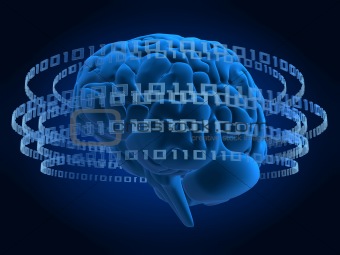‘Robot Brain’ Goes Live in the Cloud
Having your head in the clouds may be a problem for humans, but could represent a major step forward for robots. European scientists have turned on the first part of a web-based database to help robots learn about what they encounter in the human world.
 The database, known as Rapyuta, is an online “brain” that describes objects robots have come across and is capable of performing complicated computation for the robot, such as mapping out how to navigate a room or understanding human speech.
The database, known as Rapyuta, is an online “brain” that describes objects robots have come across and is capable of performing complicated computation for the robot, such as mapping out how to navigate a room or understanding human speech.
The database gets its name from the Japanese film by Hayao Miyazaki “Castle in the Sky,” – the place where all the robots live.
Because Rapyuta means that robots won’t need all of their processing power on-board, manufacturers will be able to boost a robot's mobility while simultaneously reducing its cost.
And this win-win advantage should only improve over time. As wireless data speeds continue to increase in speed, more and more robotic thinking could be offloaded to the web. On the other hand, without a database like Rapyuta, many robiticists fear that machines will be restricted to working in controlled environments like production lines, instead of living alongside humans.
The database is part of the European Robo Earth project, which began in 2011, and involves researchers at five separate European research labs. Not only were they responsible for the creation of the database, they also developed the software necessary for robots to connect to and quiz Rapyuta.
Once they are 'plugged in,' Rapyuta keeps robots from having to waste processing on creating their own idiosyncratic catalog of how to deal with objects. For machines such as drones, self-driving cars, or other mobile robots that have to crunch a lot of numbers just to get around, the database will be especially useful.
This standardization would allow for robots to have one central location to go to when confronted with a new situation, place or thing – like a robotic version of Wikipedia. For example, as robotics begins to move into people’s homes, these machines won’t be burdened with having to learn how to set the table. Thanks to Rapyuta, they will already know.
From a research perspective, Rapyuta should also make it possible for the robotics to make greater strides in a shorter amount of time, since everyone won’t have to solve the same problems over and over.
Full story at BBC News










